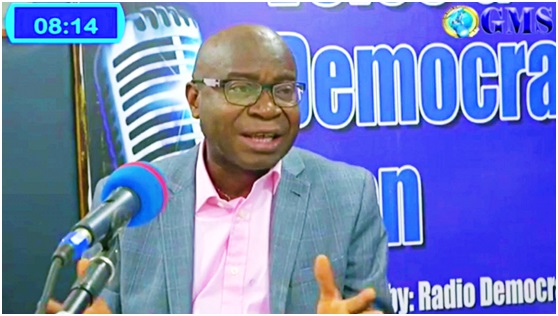By Ralph Sesay
Sierra Leone Financial Secretary, Mr. Sahr Jusu, has been branded as the architect of the New Direction’s major economic reforms in the country.
Mr. Sahr Jusu who remains one of the oldest members of staff at the Ministry of Finance was said to have been around throughout the country’s post-war economic recovery by serving a number of Finance Ministers and other high placed members of the country’s economic infrastructure.
Many say his wealth of experience in place of failures, challenges and gaps in managing a third world economy dependent on donor funds, is currently paying off in the New Direction Government.
Mr. Jusu’s sound advice around the areas of cutting down on tax and duty waivers to increased attention in the areas of increased domestic revenue generation, wage bill and many others for the government, has paid off leading to increased donor confidence.
The most striking of the achievements was the return of the Extended Credit Facility (ECF) with the International Monetary fund.
The IMF was able to pump into the country’s economy US$26.2m and US$13.9m as direct budgetary support to the New Direction Government.
These supports to the budget of the country were precipitated after the government took deliberate actions to remove subsidy from rice and fuel and also ensured a much more transparent and prudent management of the economy.
The IMF fell out with the APC because they were alleged of reneging on the IMF conditionalities.
The previous government had announced a recession few months to the March, 2018 elections and had also announced a number of measures to get the economy running.
The situation had remained deplorable until they were booted out in the March elections.
They left a whooping external debt of over US$ 2 billion dollars and over Le 400 billion in domestic debts.
Many say the IMF and other international donors are back in the country with a renewed zeal largely due to the sound economic nature of the new finance team under the leadership of the Financial Secretary.
The Financial Secretary who is very much conversant with the ailing problems of Sierra Leone’s economy had advised for an overall audit exercise across MDAs and all other public sectors, stringent adherence to procurement processes, wage bill control, creation of the TSA and many other reforms.
This had resulted into increased revenue for Government. Even though many Sierra Leoneans say the reforms are yet to directly impact on the ordinary Sierra Leonean, it is crystal clear that donor confidence has been restored.
Many say the signs are very clear that things will improve for the better.
The economy has remained stable even when government is pumping Le110 billion in financing debts annually.
This is also coupled with a huge investment of over four hundred billion Leones into the financing of education both at the Tertiary, Senior, Junior and Primary levels.
Government is also continuously meeting other compelling obligations in other sectors such as energy, water and roads.
It is therefore laudable to commend the Financial Secretary who has been in charge of all of the arrangements in a very much constrained and tight budget.
President Bio during the recent State Opening of Parliament had praised his finance team, noting that
‘’as a result of our good record in economic management, we have also benefitted from a number of development projects in various sectors.
‘’The number of donor projects approved in 12 months of my administration is unprecedented in the history of Sierra Leone,’’ the President stated.
President Bio disclosed that the potency of his financial team has seen the approval of over eleven (11) projects that have been approved by international financial institutions, amounting to US$ 196.3 million.
‘’…Of that amount, 59 % were loans and 41 % were grants. By June of 2019, five additional projects amounting to US$ 230 million will be approved by the World Bank,…’’
The President noted that his government is negotiating for all the loans given to his government to be reduced to grants.
Over Increased Donor Confidence… Sierra Leone’s Financial Secretary Hailed


